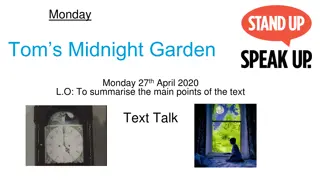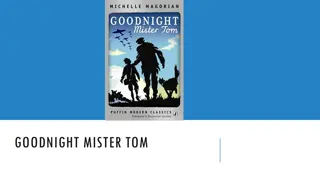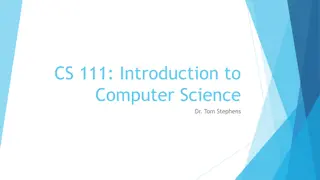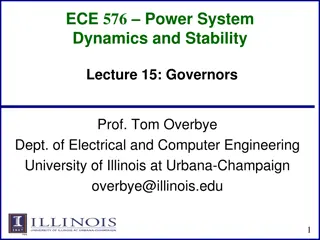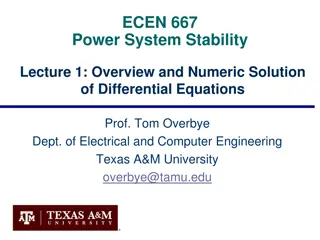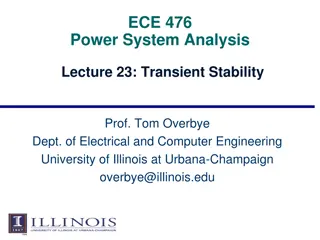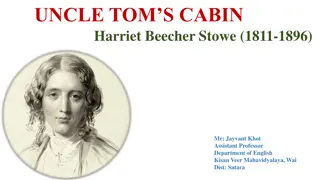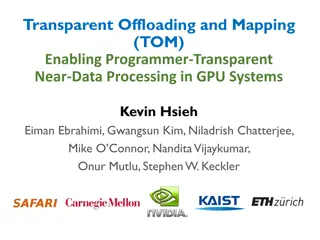
IOI 2016: Problem Solving, Presenting, and Programming by Tom Verhoeff
Explore the world of problem solving, presenting, and programming with Tom Verhoeff from the Department of Mathematics and Computer Science. Discover the classical game of Nim, mathematical analysis, simplified algorithms, and more. Join the journey of learning and innovation presented at the International Olympiad in Informatics 2016.
Download Presentation

Please find below an Image/Link to download the presentation.
The content on the website is provided AS IS for your information and personal use only. It may not be sold, licensed, or shared on other websites without obtaining consent from the author. If you encounter any issues during the download, it is possible that the publisher has removed the file from their server.
You are allowed to download the files provided on this website for personal or commercial use, subject to the condition that they are used lawfully. All files are the property of their respective owners.
The content on the website is provided AS IS for your information and personal use only. It may not be sold, licensed, or shared on other websites without obtaining consent from the author.
E N D
Presentation Transcript
Problem Solving, Presenting, and Programming Tom Verhoeff Dept. Math. & Computer Science To be presented at IOI 2016
Some Background Involved in IOI from 1994 until 2007 IS: website with historic data ISC: co-founder, chair IOI Syllabus, co-author, editor Teach math enrichment classes in primary school Weekly Focus on problem solving Classical problems + exotic/newer problems For references, see the article / Department of Math & CS
Nim Classical two-player game State: Several piles of items Move: Take one or more items from one pile End: Whoever takes last item loses / Department of Math & CS
Mathematical Analysis Known as impartial game Both players can make the same kind of moves Algorithm for perfect play is known Involves binary notation and nim sum (xor) Harder to teach in primary school So, look for simplification / Department of Math & CS
Nim Sum 1 pile with > 1 item: easy to win 3 = 011 4 = 100 5 = 101 010 (nim sum) Lost if nim sum = 0 Else: take from pile k with k and leave k nim items nim sum < k / Department of Math & CS
Simplified Algorithm, Part 1 For each pile 1. Break it down into groups of size 1 2. Repeatedly merge two groups of equal size 3. This terminates when all group sizes differ 19 = //// //// //// //// + // + / 5 = //// + / 3 = // + / Find largest group size G with odd occurrence count If all even: lost / Department of Math & CS
Simplified Algorithm, Part 2 Take 1 from any max-size-G group, say in pile P Split remainder of that group 18 = //// //// + //// + // + / + // + / 5 = //// + / 3 = // + / Continue taking from pile P such that all group sizes have even occurrence count 6 = //// + // 5 = //// + / 3 = // + / / Department of Math & CS
Programming Not so convenient in imperative language Easier in functional language with patterns Wolfram Language Mathematica Free on Raspberry Pi, Intel Edison Free in the Wolfram Cloud www.wolfram.com/language / Department of Math & CS
Programming in Wolfram Language singletons[ n_Integer ] := Table[ {1}, n ] combine[ {x___, a_, y___, a_, z___} ] := {x, Join[a, a], y, z} combine[ list_List ] := list combineStar[ list_List ] := FixedPoint[ combine, list ] split[ n_Integer ] := combineStar[ singletons[ n ] ] split[ position_List ] := Map[ split, position ] split[ {3, 4, 5} ] -> {{{1, 1}, {1}}, {{1, 1, 1, 1}}, {{1, 1, 1, 1}, {1}}} / Department of Math & CS
Conclusion Presenting a solution can be a problem in itself Simple and insightful algorithm for Nim Exercise: Find algorithm when taking from one or two piles / Department of Math & CS
Questions? / Department of Math & CS




